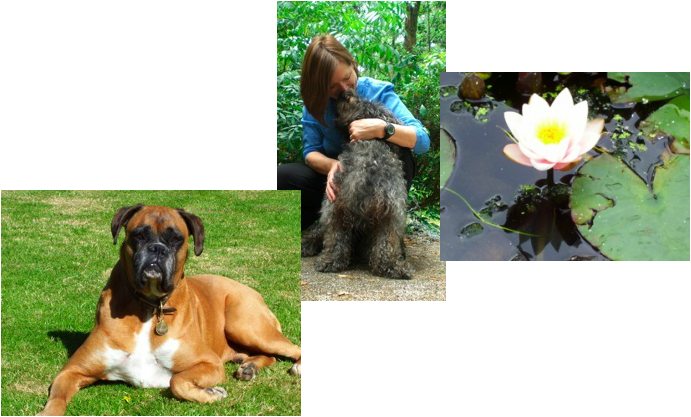Euthanasia is a term that means ‘peaceful death’. Clearly, the aim of performing an in-home euthanasia is to subject you and your pet to as little added stress as possible at such a horrible time, to use as minimal restraint as is possible, and further to allow you the opportunity to grieve privately. This is why I come to your home without a helper.
The drugs given are anesthetic/pain/sedation agents (injected under the skin or in the muscle) which will cause your pet to fall into a deep sleep (essentially anesthesia). IF the pet allows me to inject slowly, the injection will not sting. If I have to push it rapidly (not uncommon in cats who aren't thrilled to eat as a distraction) the drug will sting for a second or two and the pet might let us know it is not happy). An intravenous injection of pentobarbitol is then given which causes your pet's heart to cease beating.
Following the second (intravenous) injection, and immediately prior to death, a very, very small percentage of animals, though in a coma and completely unaware, will appear to take gasping breaths and/or vocalize. The protocol I use typically negates this, however. Some will urinate and defecate. Again, though this may cause you to worry that your pet is suffering, s/he is in an anesthetic coma and could undergo surgery at this moment without feeling anything, so please do not be alarmed.
Occasionally, the sedative/anesthetic injection needs to be repeated, or takes longer than the typical 5-10 min. to take effect. If any of the following are present, please let me know because heavier sedation will be needed:
1. The patient is under-dosed because you provided and I guessed or concurred with an incorrect weight.
2. The patient has lost a good bit of weight recently. The dose needs to be for the weight the patient was before the current illness caused weight loss.
2. Then animal is aggressive or highly upset by my presence.
3. The animal is very much overweight.
4. The animal's chest or abdomen is full of fluid (often as a result of cancer or liver failure)
5. The pet is in heart failure
6. The pet has been taking CBD oil
You and your family members may choose to be present or to excuse yourselves at any time you wish. Children and other pets are welcome to be present and I am more than willing to spend time with them as necessary. Possibly, animals might sense that the ‘spirit’ of their animal companion is no longer in the body. It has been my experience that this may lessen their grieving, which is a real phenomenon in animal companions, although mostly they will reflect the owner's sadness.
The drugs given are anesthetic/pain/sedation agents (injected under the skin or in the muscle) which will cause your pet to fall into a deep sleep (essentially anesthesia). IF the pet allows me to inject slowly, the injection will not sting. If I have to push it rapidly (not uncommon in cats who aren't thrilled to eat as a distraction) the drug will sting for a second or two and the pet might let us know it is not happy). An intravenous injection of pentobarbitol is then given which causes your pet's heart to cease beating.
Following the second (intravenous) injection, and immediately prior to death, a very, very small percentage of animals, though in a coma and completely unaware, will appear to take gasping breaths and/or vocalize. The protocol I use typically negates this, however. Some will urinate and defecate. Again, though this may cause you to worry that your pet is suffering, s/he is in an anesthetic coma and could undergo surgery at this moment without feeling anything, so please do not be alarmed.
Occasionally, the sedative/anesthetic injection needs to be repeated, or takes longer than the typical 5-10 min. to take effect. If any of the following are present, please let me know because heavier sedation will be needed:
1. The patient is under-dosed because you provided and I guessed or concurred with an incorrect weight.
2. The patient has lost a good bit of weight recently. The dose needs to be for the weight the patient was before the current illness caused weight loss.
2. Then animal is aggressive or highly upset by my presence.
3. The animal is very much overweight.
4. The animal's chest or abdomen is full of fluid (often as a result of cancer or liver failure)
5. The pet is in heart failure
6. The pet has been taking CBD oil
You and your family members may choose to be present or to excuse yourselves at any time you wish. Children and other pets are welcome to be present and I am more than willing to spend time with them as necessary. Possibly, animals might sense that the ‘spirit’ of their animal companion is no longer in the body. It has been my experience that this may lessen their grieving, which is a real phenomenon in animal companions, although mostly they will reflect the owner's sadness.

